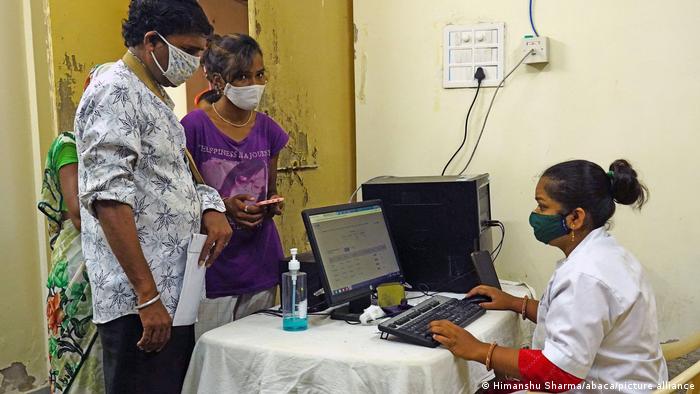
New Delhi: Last week, the UK announced new rules mandating that travellers from 17 countries do not have to self-isolate if they are fully vaccinated when they arrive in the UK. India was not included in that list.
The changes to the travel regulations, which come into effect on October 4, sparked outrage in India. Many are incensed over the lack of recognition for the country's digital coronavirus vaccine certification app — CoWIN.
Both sides are still in discussion over the compatibility of the CoWIN app — which provides data on the status of those vaccinated in India — with the UK's NHS app.
British authorities have raised doubts about the veracity of the CoWIN data even as several other countries look to adopt the underlying technology.
At the same time, authorities outside India appear uncertain over the validity of India's locally developed Covaxin jab, even while they accept Covishield, India's version of the AstraZeneca vaccine.
India slams 'discriminatory policy'
India's Foreign Secretary Harsh Vardhan Shringla spoke about the UK's refusal to ease entry restrictions for people from India at a press conference before his visit to the US alongside Prime Minister Narendra Modi.
"Here is a vaccine, Covishield, which is a licensed product of a UK company manufactured in India, of which we have supplied five million doses to the UK at the request of the government of the UK. We understand that this has been used in their national health system," said Shringla.
"Therefore, non-recognition of Covishield is a discriminatory policy and does impact those of our citizens traveling to the UK," he added.
India has warned of "reciprocal measures" in response.
Quarantine rules remain amid CoWIN doubts
The AstraZeneca COVID-19 vaccine is produced under two trade names — Vaxzervria and Covishield. It is the same product made at different locations. Covishield is manufactured by the Serum Institute of India in Pune and has been the main vaccine in India's vaccination drive.
Of the more than 850 million COVID-19 vaccine doses administered in India, about 737 million (or 88%) have been Covishield doses.
UK authorities finally agreed to include the Covishield vaccine in its updated international travel advisory following criticism from their Indian counterparts over the European country's initial refusal.
However, Indian travelers vaccinated with two doses of Covishield still have to undergo 10 days of quarantine in the UK despite the amendment. Officials admitted that the inclusion of the vaccine would not make much of a difference due to the questions over the CoWIN app.
"We're clear Covishield is not a problem. The UK is open to travel and we're already seeing a lot of people going from India to the UK, be it tourists, business people or students," British High Commissioner Alex Ellis said in a statement.
"We have been having detailed technical discussions regarding certification, with the builders of the CoWIN app and the NHS app, about both apps. They're happening at a rapid pace, to ensure that both countries mutually recognise the vaccine certificates issued by each other," Ellis said.
No need for 'reservations' over CoWIN app
While the technical details of the certification process continue to be worked out, experts in India have argued that the controversy is unnecessary.
"It is not about the vaccine, the UK is questioning India's vaccine certification. CoWIN is a good app to use and therefore let us address the problem with science," virologist Shahid Jameel told DW.
"I think there is absolutely no reason for countries to have reservations about CoWIN certification. The certification procedures are tamper-proof as is the user authentication," Gautam Menon, professor of physics and biology at Ashoka University, told DW.
"The problems with CoWIN, such as they are, are unrelated to these. They are typically for that fraction of users who need to get a form corrected."
Covaxin awaits WHO's approval
The US has decided it will admit fully vaccinated air travelers from the 26 Schengen countries in Europe, as well as non-Schengen countries Britain, Ireland, China, India, South Africa, Iran and Brazil, from November.
But only for those who have received vaccines approved by the World Health Organization (WHO) or the US Food and Drug Administration (FDA), which does not include Covaxin.